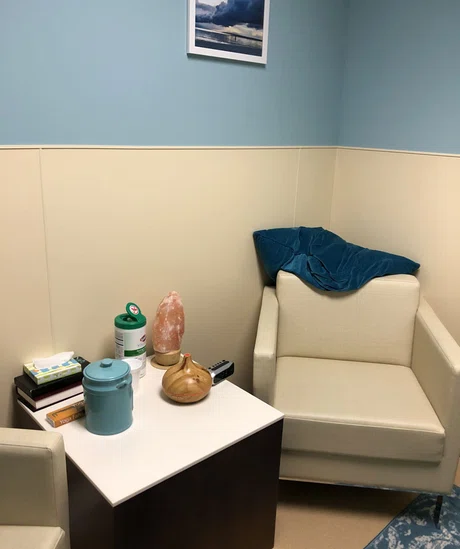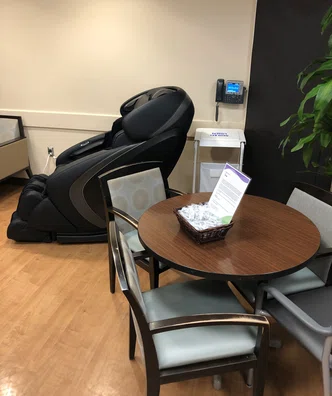

In this
issue

WELCOME
NURSING SCIENCE
Health Promotion, Self-Care, and Nurses


Nursing Degrees Showdown: MSN vs. DNP for the Advanced Practice Nurse
EDUCATION
PRACTICE
PROFESSIONAL DEVELOPMENT

Professional Development at Houston Methodist

Methodist Advancement into Professional Practice (MAPP) Program
FROM OUR TEAMS

Introducing the First Patient Care Assistant Immersion Course Participants

Rest and Relaxation: What Do You Do to De-stress?

ABOUT DISCOVERN
PRACTICE
Self-Care In Practice
By Lauren Kuhl, Rebecca Nosich, Shannon Swalve, CJ Ligon,
Madison Maas & Rachel Godleski, MAPP Students
By Lauren Kuhl, Rebecca Nosich, Shannon Swalve, CJ Ligon,
Madison Maas & Rachel Godleski, MAPP Students
4 MIN READ


Self-care is difficult to do but even more challenging when you are working 36-48 hours a week and balancing odd shifts and hours.
In Bratton's (2018) article "Self-care for the Caregiver," nursing fatigue and overall performance deficits were found to occur due to a lack of self-care. Nurses also reported an increased risk of errors, a decline in short-term memory, reduced learning ability, and a negative impact on divergent thinking, innovation, and insight. Furthermore, nurses exhibited increased risk-taking behavior and impaired mood and communication skills. Lastly, nurses reported clinical decision regret because their behaviors did not align with professional nursing standards.
After surveying nurses in the Emergency Department, Medical ICU, and Oncology Unit, we found many negative effects of not practicing self-care in our own Houston Methodist Employees. Some nurses stated that they were unable to take lunch breaks, which caused them to "not think straight," while others stated that the demand of patients and the lack of staff causes them to take on more than they can handle, resulting in medication errors and a decrease in quality of care for their patients. Other nurses felt that they were getting burnt out from nursing, which increased their stress and negatively impacted their mental and physical health. These consequences occur not only during the days that employees work but also on the days they have off. Rest days are less productive because they are mentally recovering from their shift, catching up on sleep, and recharging for their upcoming shift.
In an article about the importance of self-care from the Cancer Treatment Centers of America at Midwestern Regional Medical Center, nurses were encouraged to take control of their breaks. They gave several key strategies to prioritize, including buddying up with a mentor to encourage each other to do their best work every time. Another helpful tip was to turn off your cellphone to take mindful breaks. The nurses at this hospital used their "serenity room" to take their breaks, and 96% of them reported a greatly reduced stress level. Taking adequate breaks not only affects nurses but their patients as well. After implementing these strategies and using the serenity room, they saw increases in patient satisfaction scores and received the Guardian of Excellence award for Press Ganey.

Figure 1
Zen Room on WT 14 (Oncology) that has an aroma diffuser, relaxing music, nature photos, and space for relaxation.
In "Promoting Self Care at Work - It is necessary and doable: A report from the AHNA Practice Grant Recipient" (2020), nurses are again encouraged to incorporate time in their day to increase practices of self-care and stress management for themselves. A nurse interviewed for the article stated, "I feel like I completed my tasks, but not in a meaningful way." Some helpful tips mentioned in this article include advocating for self-care by keeping a basket of water and healthy snacks available to ensure nurses are hydrated and have opportunities to eat, even on busy days. Other tips included in the article include posting a quote of the week and an affirmation box to write encouraging words and support to colleagues. In an interview for how nurses promoted self-care on the Walter Tower 15 Bone Marrow Transplant unit, nurses said they regularly schedule team-bonding activities and events such as going as a team to Painting with a Twist, yoga, and Astros games, as wells celebrating birthdays once a month. This creates a great team bond with colleagues and promotes teamwork on the unit.
The units that were discovered to have good self-care practice include Oncology (WT 14), Bone Marrow Transplant (WT 15), and the Medical ICU (Fondren 2). Nurses in these units utilize their personal Zen Room, massage chairs, and other self-care techniques throughout their shift. After interviewing nurses in these specialties, they said that their "neighbor" system provides them breaks if they need one, which allows them to rely on another nurse to relieve them or help them out when needed.
An oncology nurse said something that helps her during her shift is debriefing after an intense situation. "I think it can be very useful and a good learning experience for everyone involved. Debriefing provides good information for what was done well and what could be improved, which can only enhance the next code or CERT, she said."
This can decrease stress and improve patient outcomes without avoiding self-care. Allowing nurses on WT 14 to step off for breakfast and lunch, performing rounds daily, and taking mental breaks in the Zen room allows for decreased nurse burnout, great teamwork, increased patient satisfaction, and improved mental and physical health of the floor's nurses. There are so many benefits to the patient and yourself for practicing self-care while working your shift. It is important to take time to do this both inside and outside of work to promote a healthy lifestyle.

Figure 2
Complimentary earbuds and massage chair for staff use in the Medical ICU.

Figure 3
The Healing Gardens, located outside between Dunn and Fondren Towers, provides patients and employees with a place to take mental breaks and get fresh air.
References:
Related Articles

NURSING SCIENCE
Health Promotion, Self-Care, and Nurses

FROM OUR TEAMS
Rest and Relaxation: What Do You Do to De-stress?
Contact us at CNREPHelp@houstonmethodist.org
Questions or comments?
© 2021. Houston Methodist, Houston, TX. All rights reserved.







